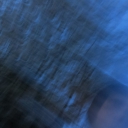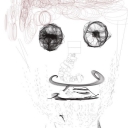@Jona Ohh yeah, bytebeat stuff is very interesting, it's kind of insane how far people took it since it first came up.
Regarding my patch sounding more musical than some more sophisticated approaches, that's basically what my problem is. I find it difficult to come up with creative sequencing solutions, that are not only fancy, but actually sound good and musical. I often find that the more complex something gets, the harder it becomes for the listener to actually follow what's going on, so I might as well just use random sources, if that makes any sense.
I like what Sean Booth himself once said in an Interview:
"It's like saying, 'I want this to go from this beat to that beat over this amount of time, with this curve, which is shaped according to this equation. Or you want all the sounds and the way the rhythm works to change, and you don't quite know how long the transform will take. You can then build a patch to do the transform, and you do it by ear with a fader. We may have one fader that determines how often a snare does a little roll or skip, and another thing that listens and says 'If that snare plays that roll three times, then I'll do this.' We don't use random operators because they're irritating to work with — every time you run the process it sounds different. How we play the system dictates how the system responds."
It sounds like they are working with manipulating actual sequences instead of letting the system generate the whole thing from scratch, which is definiely something I have to play with a bit more.





